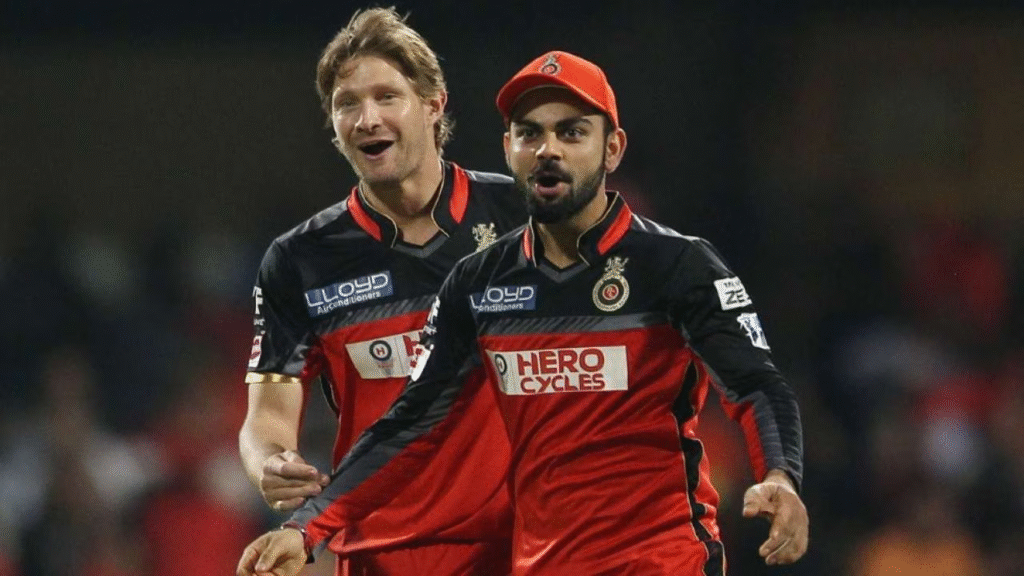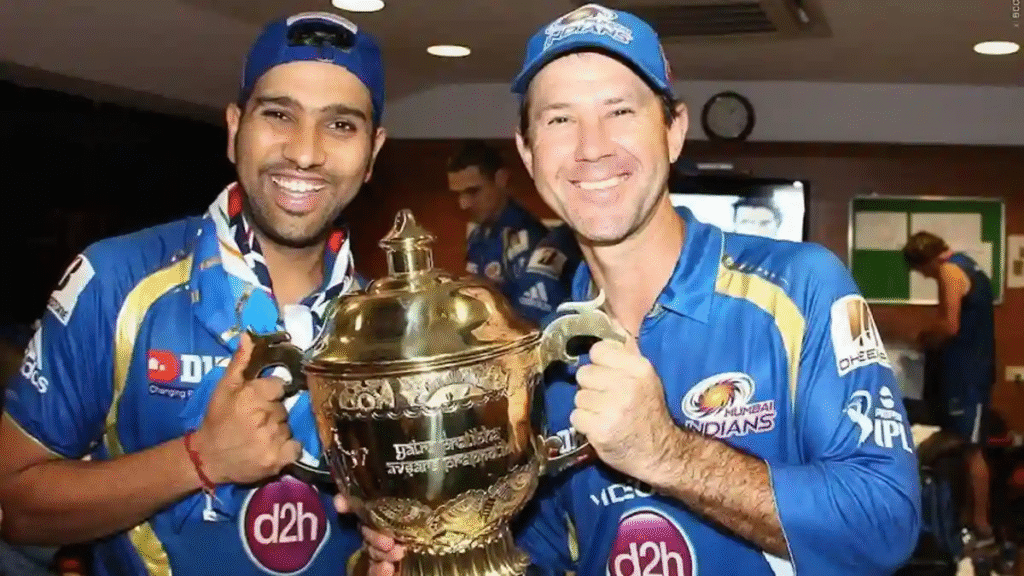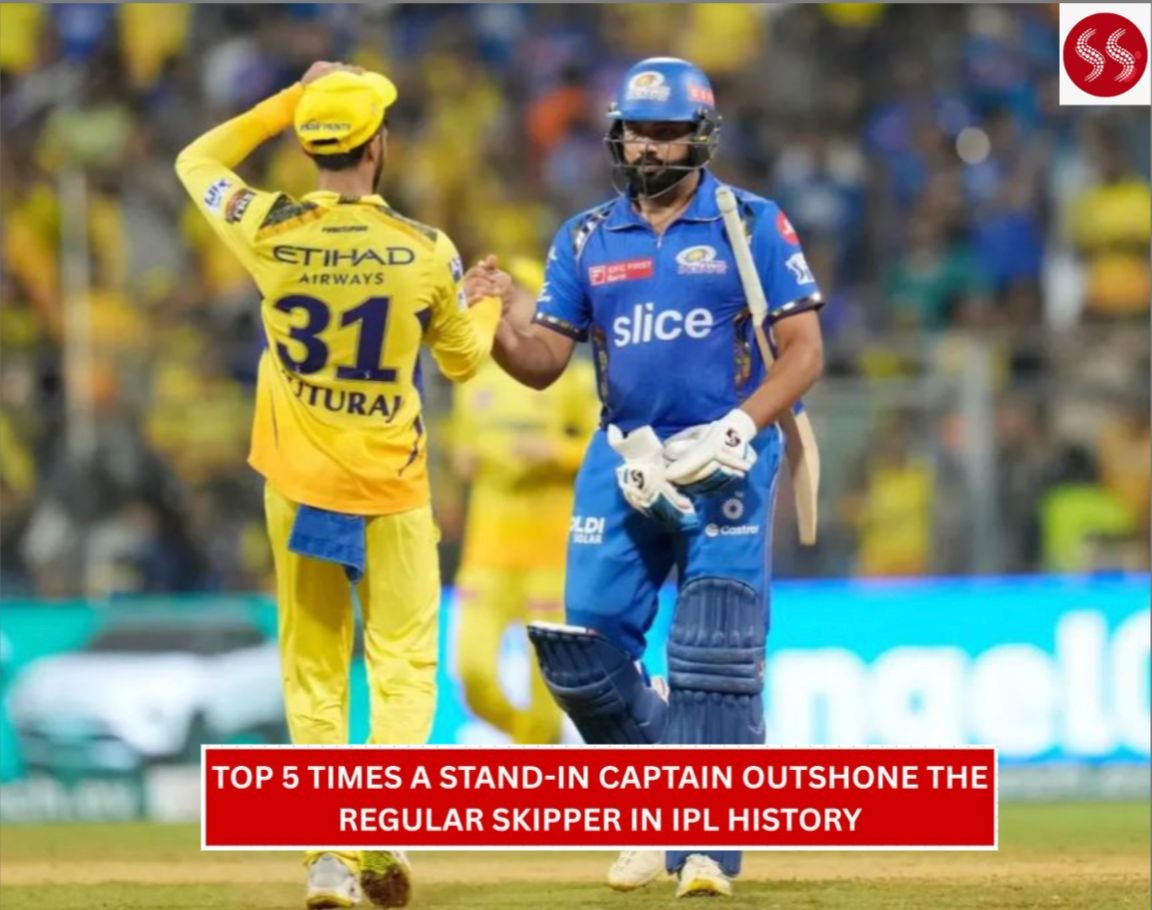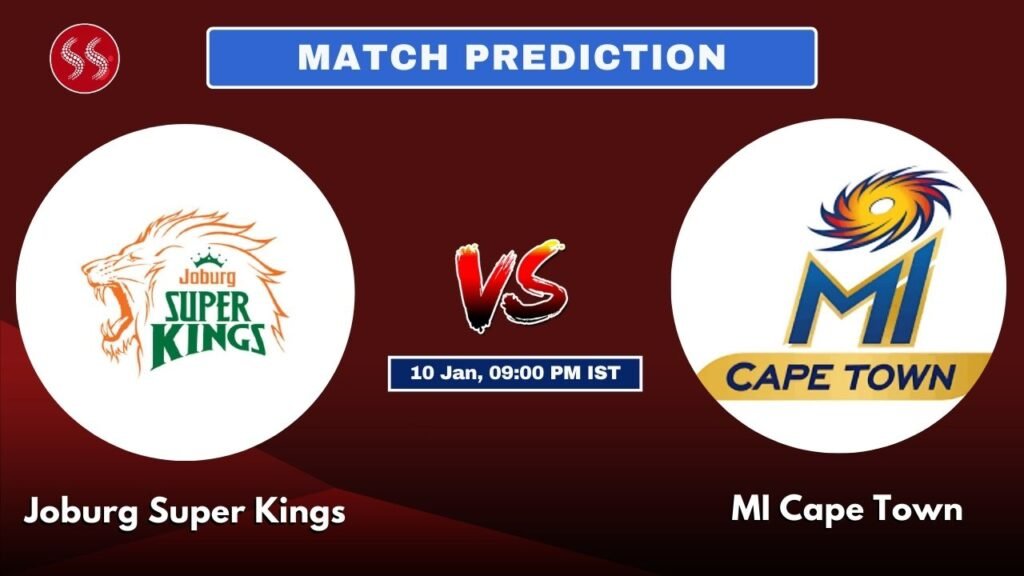Stand-in captains in the Indian Premier League have often been the unexpected heroes, stepping in when chaos looms and turning disarray into direction. In a tournament driven by high stakes and unpredictable twists, it’s not just star players but cool-headed leaders who shape outcomes. While permanent captains carry the spotlight, it’s the stand-ins who sometimes shoulder the pressure, make clutch decisions, and prove that leadership is about instinct, resilience, and rising when it matters most.
While most franchises rally around a star captain chosen before the season, cricket, as always, has its curveballs. Injuries, poor form, or strategic calls have sometimes forced teams to turn to their bench for leadership. And in those moments of uncertainty, stand-in captains have risen with such brilliance that they ended up outshining the very players they replaced.
Here are the Top 5 times when stand-in captains didn’t just fill in — they took over, inspired, and sometimes even rewrote IPL history.
5. David Warner for Shikhar Dhawan (Sunrisers Hyderabad, 2015 Onwards)

Context:
SRH initially handed the captaincy to Shikhar Dhawan, but after a middling season, the franchise made a bold move — they appointed David Warner, the fiery Australian opener, as captain in 2015.
Warner’s Influence:
Warner didn’t just take charge — he galvanised the entire unit. He led by example with the bat, constantly scoring at the top, and instilled a fearless yet disciplined mindset within the team.
Impact:
Warner’s standout moment came in 2016, when he led SRH to their first-ever IPL title, defeating the star-studded RCB in the final. His trust in bowlers like Bhuvneshwar Kumar and Rashid Khan paid rich dividends.
Legacy:
Warner’s captaincy era turned SRH into perennial playoff contenders. A stand-in turned full-time captain, Warner became a franchise icon.
4. Shane Watson for Virat Kohli (Royal Challengers Bangalore, 2017)

Context:
RCB entered IPL 2017 with high hopes, but Virat Kohli was ruled out of the early games due to a shoulder injury. With AB de Villiers also recovering, it was Shane Watson, the seasoned Aussie, who took over as skipper.
Watson’s Leadership:
Watson brought in a calm, methodical approach — a clear departure from Kohli’s emotionally charged captaincy. He used bowlers more flexibly, trusted local talents, and kept his calm in high-pressure scenarios.
Impact:
Despite a poor overall campaign for RCB, Watson’s leadership was praised for its tactical maturity. He made the most of a weakened squad, brought structure to chaos, and was especially appreciated by younger players.
Legacy:
Though temporary, Watson’s stint revealed the value of detached, data-driven leadership — something RCB had often lacked under passionate skippers.
3. Virender Sehwag for Gautam Gambhir (Delhi Daredevils, 2010)

Context:
Gautam Gambhir, Delhi’s regular skipper, was injured in the early stages of the 2010 season. In his absence, the franchise turned to the ever-attacking Virender Sehwag, known more for his batting blitz than strategic brain.
Sehwag’s Style:
But Sehwag surprised everyone. He didn’t just bring aggression to the top order — he brought it into his captaincy. Sehwag backed young guns like David Warner and Amit Mishra, encouraged freedom of expression, and played fearless cricket.
Impact:
While Delhi didn’t make the playoffs, Sehwag’s leadership infused a bold new culture into the squad. His captaincy gave fans memorable moments and players newfound freedom.
Legacy:
Sehwag’s approach stood in contrast to Gambhir’s structured style — and in many ways, became the identity Delhi would chase for years.
2. Rohit Sharma for Ricky Ponting (Mumbai Indians, 2013)

Context:
Ricky Ponting, a World Cup-winning legend, came in with immense pedigree but struggled to adapt to T20 cricket in IPL 2013. His batting was off-colour, and MI’s campaign looked shaky in the early weeks.
Rohit’s Rise:
When Ponting selflessly stepped aside, a 25-year-old Rohit Sharma was given the reins — and the transformation was instant. He wasn’t just another fill-in; Rohit showed rare tactical clarity, calm decision-making, and led from the front with the bat.
Impact:
Under his command, MI turned around their season, building momentum game after game. Sharma’s composure helped MI win crucial moments and culminated in lifting their maiden IPL trophy. His stand-in captaincy turned permanent — and eventually legendary.
Legacy:
From that moment, Rohit went on to win five IPL titles, becoming one of the most successful captains in IPL history — a journey that began as a stand-in.
1. Ruturaj Gaikwad for MS Dhoni (Chennai Super Kings, 2024)

Context:
In what seemed like the beginning of an emotional farewell, MS Dhoni decided to pass the baton in IPL 2024. With lingering fitness issues, he stepped back, and Ruturaj Gaikwad, known more for his classical strokeplay than captaincy credentials, was handed the reins.
Gaikwad’s Growth:
All eyes were on him, and he delivered with grace. Gaikwad brought a calm, no-fuss style reminiscent of Dhoni but executed it in his way. His field placements were sharp, bowling rotations smart, and man-management mature.
Impact:
He didn’t let the “Dhoni shadow” overwhelm him. Instead, he leaned into the legacy while defining his own. Under him, CSK looked refreshed, and young players like Matheesha Pathirana and Shivam Dube thrived.
Legacy:
Though early in his captaincy journey, Gaikwad’s stint has already sparked excitement about a new era of CSK dominance, post Dhoni.
READ MORE:

